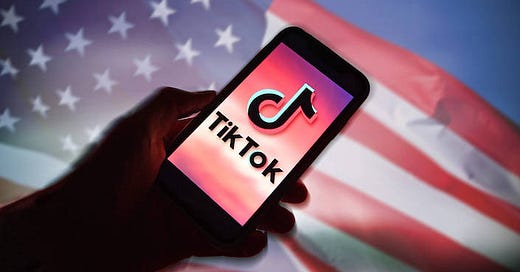TikTok Dilemma: The Threat of US Ban Looms
Dear reader,
Here are 5 Caixin Global China Watch articles about TikTok’s dilemma that you should not miss.
【📍30% off for a yearly subscription | China Watch special discount💰】
The Countdown Begins: TikTok Navigates Uncertain Future Amid U.S. Ban Bill
Just six months ago, TikTok, the short-video app owned by Beijing-based ByteDance Ltd., was charging headlong into the U.S. e-commerce market. From September through December, nearly $1.2 billion of goods were sold on the platform used by 170 million Americans. This year, the app aims to generate as much as $20 billion in gross merchandise volume (GMV) in the world’s biggest consumer market.
TikTok’s High Stakes Battle Against U.S. Ban Threatens Worldwide Expansion
American consumers contributed about 8.6% to TikTok’s total gross merchandise volume in its e-commerce business globally in 2023. 【📍30% off for a yearly subscription | China Watch special discount💰】 TikTok is desperately lobbying in Washington to stop a bill that would force a sale of the popular short-video app by its Chinese owner
Rivals Vie to Fill Market Void as U.S. Business Ban Looms Over TikTok
A ban on TikTok would significantly alter the landscape of the short video industry in the U.S., affecting 7 million small businesses and 170 million Americans who use its services 【📍30% off for a yearly subscription | China Watch special discount
ByteDance Holds Firm Against Selling TikTok Despite U.S. Ban Threat
TikTok CEO Shou Zi Chew departs following a meeting with Senator John Fetterman, a Democrat from Pennsylvania, in Washington, D.C., on March 14, 2024. TikTok’s parent ByteDance Ltd. doesn’t plan to sell the unit although the U.S. Congress has threatened to ban the popular short-video platform unless it’s divested from its Chinese owner.
Caixin Global Exclusive: ByteDance Revives Gaming Ambitions Amid Fears of U.S. TikTok Ban
ByteDance’s headquarters in Beijing. In a surprising reversal of its recent strategy, TikTok parent company ByteDance Ltd. plans to re-enter the gaming industry. This decision came less than four months after it chose to wind down its Nuverse gaming brand and retreat from mainstream video games.








